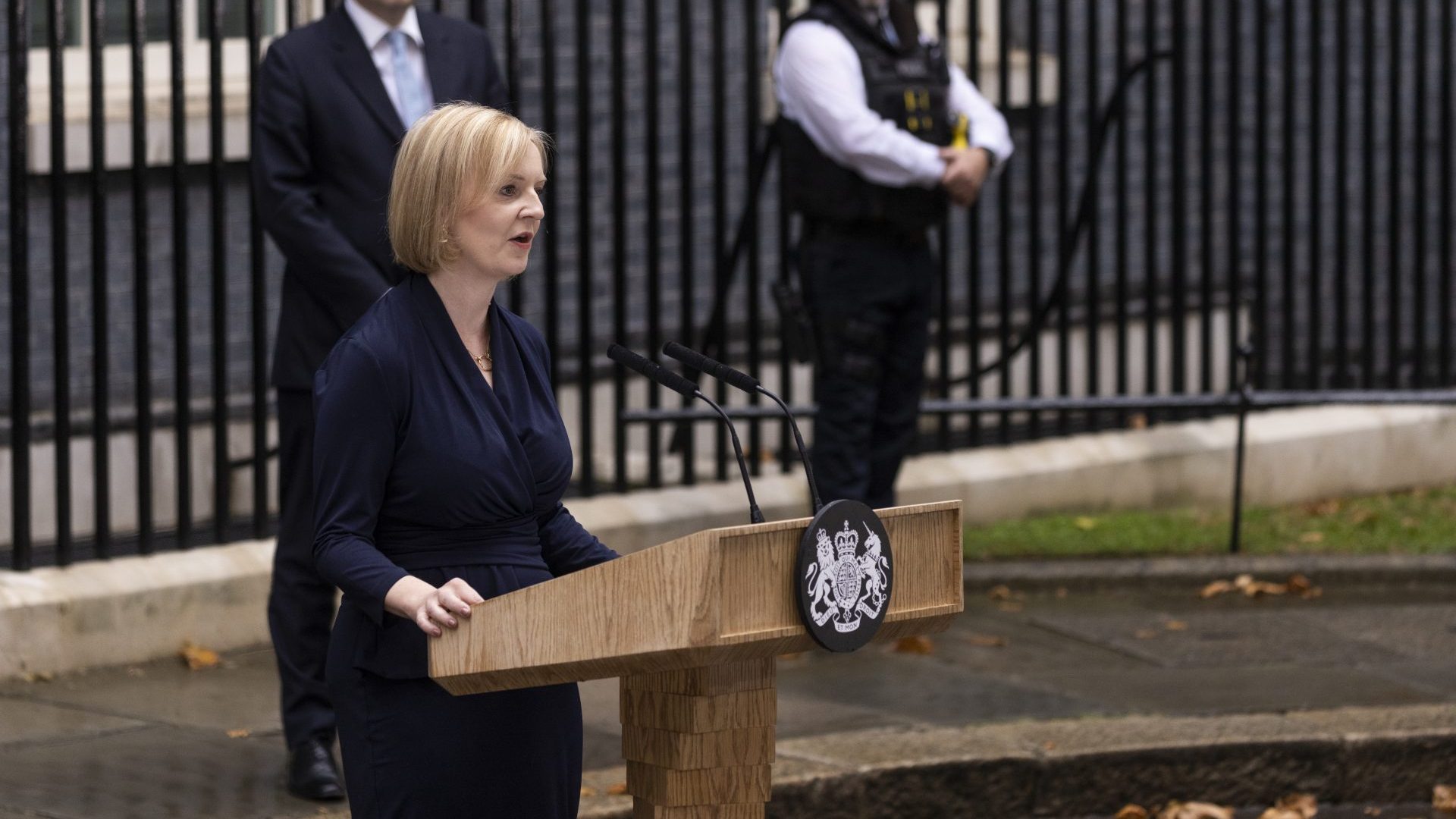Britain, which once prided itself on political stability but increasingly looks like Italy, has just welcomed its fourth prime minister in six years. Liz Truss, the new incumbent, faces a daunting in-tray that ranges from a domestic cost of living crisis to uncertainty over Britain’s place in the world.
Truss, 47, joins Theresa May and the ousted Boris Johnson as the latest entrant into Downing Street since David Cameron’s resignation in 2016. Formerly the UK’s foreign secretary, incidentally, the fifth occupant of that job since 2016, Truss models herself on Margaret Thatcher, whether riding in a tank or wearing similarly styled clothes. Like the Iron Lady, she can also come across as strident, particularly in her rhetoric toward China.
Truss assumes power in the middle of economic turmoil. Inflation in the U.K. is running at 13%, the highest in 40 years. Goldman Sachs said last week it could reach 22%, driven by spiraling energy prices and a tight UK labour market. This winter, millions of Britons face “fuel poverty,” unable to pay their bills, forced to choose between heating and eating.
Truss has promised a bold plan to tackle the crisis. But her focus to date has been on winning the Conservative Party leadership contest triggered by the resignation of Boris Johnson after a mutiny within his party. In the end, she handily beat her favored opponent, ex-Chancellor Rishi Sunak, positioning herself as loyal to Johnson but also an agent of change.
This has drawn laughs among political insiders in London. They view Truss as a blabbermouth who regularly criticised Johnson’s foibles in private while brazenly campaigning in public for his job, mainly on Instagram.
Then again Truss has defied political gravity. She effortlessly switched from firm supporter of UK membership of the European Union in the 2016 referendum to ardent Brexiteer once the cause was lost. Today she champions the idea of a confident, outward-looking “Global Britain”.
When Truss visited the US last March, she was invited to a dinner at the UK embassy in Washington where members of the American foreign policy elite were present, including US Secretary of State Antony Blinken and seven US senators.
One guest was struck by the UK foreign secretary’s lack of nuance. “Strong definite views,” said the underwhelmed invitee, “A little less clear on what follows.”
In March, Truss raised eyebrows after declaring that “Putin must lose” after his invasion of Ukraine. The sentiment was fine, but it was still a hostage to fortune.
Last month, she declined to answer in a TV interview whether President Emmanuel Macron of France was “friend or foe,” overlooking that France is a member of NATO and supports Ukraine’s resistance against Russia.
Her position on China is even more uncompromising. One of her first acts as prime minister will be to designate China as a threat to national security, according to campaign aides. By contrast, Sunak had previously planned to make the UK the “market of choice” for Chinese companies and investors, although he took a more sceptical tone on Beijing during the leadership campaign.
Truss’s hard line is driven by several factors: Beijing’s crackdown in Hong Kong; industrial espionage, including suspected infiltration of UK universities; and a more general fear about becoming dependent on China, particularly on technology such as Huawei Technology’s 5G mobile communication networks.
In Truss’s eyes, there is a direct parallel with European dependence on energy supplied by Russia. Russia, like China, is run by authoritarian rulers bent on weakening a democratic West.
How all this squares with Britain’s much-touted post-Brexit “pivot to Asia” is unclear. In her earlier role as trade secretary, Truss struck a deal with Japan — not much more than a rollover from the EU-Japan free trade pact. She also raced to conclude trade agreements with Australia and New Zealand, drawing criticism that cheap food imports would hurt UK farmers.
In the bigger picture, Truss wants to join the Comprehensive and Progressive Agreement for Trans-Pacific Partnership — the most tangible sign that the UK wants to diversify trade beyond its nearest European neighbors toward faster-growing Asia.
This is a high-risk, potentially high-return strategy. But in the near-term, the economic crisis trumps everything.
Truss, taking a leaf out of the Thatcher playbook, has promised to cut taxes to stop the pending recession and stimulate growth. She wants to reverse Sunak’s rise in social insurance payments and reduce the UK corporation tax which, she sniffily observes, currently sits at the same level as France.
The difference with Thatcher is that Truss intends to borrow heavily to fund her proposed tax cuts. In her book, a loose fiscal policy is the sensible counter to the Bank of England’s steady tightening of monetary policy through interest rate hikes. To those like Sunak who say she is “maxing out the UK’s credit card,” she retorts with a promise to pay down the debt within three years.
What if foreign investors fail to take the bait? Sterling is already slumping against the dollar. One quarter of the U.K.’s £2 trillion pound debt is in index-linked bonds, a legacy of the Thatcher government’s pioneering issuance of debt linked to inflation. Back in the early 1980s, the government argued its ironclad commitment to reducing inflation would reduce borrowing.
If that commitment falters and financial markets take fright, it will be game over for Truss – and Britain will be looking for yet another prime minister.
This article first appeared on NIKKEI Asia











